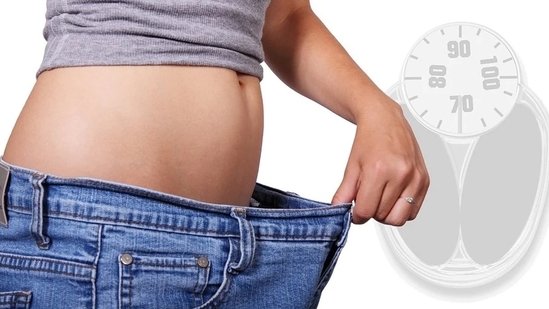It is impossible to overestimate the significance of fitness in today’s fast-paced world. Whether you’re a working professional, a student, or a homemaker, staying physically healthy should be your priority. Maintaining a healthy weight has several advantages beyond simply looking nice; it also ensures a high standard of living, both psychologically and physically.
Various Type of Fitness Benefits:
- Physical Health Benefits
- Mental Health Benefits
- Enhancing Longevity
- Social and Emotional Benefits
- Functional Fitness for Daily Life
- Boosting Immune System Function
- Increasing energy and Vitality
- Supporting Healthy Weight Management
- Promoting Healthy Aging
- Improving Flexibility and Mobility
- Physical Health Benefits
Physical health is one of fitness’s most evident and direct advantages. Frequent exercise improves immunological function, lowers the risk of developing chronic illnesses, and helps people control their weight. Physical activity lowers blood pressure, raises cholesterol, and strengthens the heart to promote cardiovascular health. Exercise can also reduce the chance of getting diseases like type 2 diabetes, stroke, and several cancers.
Weight management
Maintaining a healthy weight requires fitness. Regular activity and a well-balanced diet contribute to fat loss and calorie burning. This in turn aids in the prevention of obesity, a significant risk factor for a host of other health problems.
Bone and Muscle Health: Engaging in weight-bearing exercises such as walking, jogging, or strength training increases bone density, reducing the risk of osteoporosis. Regular exercise also helps in building and maintaining muscle mass, which is vital for overall body strength and balance.
Mental Health Benefits
Fitness has a significant effect on mental health. Stress, depression, and anxiety symptoms have all been demonstrated to be lessened by exercise. Endorphins, sometimes known as “feel-good” hormones, are released when you exercise. They improve mood and foster a sense of wellbeing.
Reduced Stress: Engaging in regular physical activity is an excellent method to reduce stress. You can take a mental break from your everyday concerns and concentrate on the task at hand. Exercise increases endorphins, which counteracts the damaging effects of stress.
Better Sleep: A healthy lifestyle is essential for getting better sleep. Frequent exercise can improve your sleep quality and help you fall asleep more quickly. Emotional stability and mental clarity depend on getting enough sleep.
Exercise improves blood flow to the brain, which helps improve memory, learning, and focus. This improves cognitive performance. It has also been connected to a decreased chance of cognitive deterioration with aging.
Enhancing Longevity
Regular physical activity has been demonstrated to lengthen life. Individuals who consistently practice fitness have been shown to have longer lifespans and higher quality of life as they age. This is mostly because chronic illness is being prevented, mental health is being enhanced, and stress and weight are being better managed.
Social and Emotional Benefits
Additionally, fitness can improve your emotional and social well-being. Taking part in fitness courses, sports, or group workouts can foster a sense of community and new friendships. These social networks can serve as a powerful source of motivation and support, helping you to stick with your fitness objectives.
Exercise regularly can enhance one’s confidence and improve one’s perception of one’s body. Your confidence grows as you meet your fitness objectives, and this has a good effect on other aspects of your life.
Maintaining a fitness regimen calls for focus and discipline, two traits that can carry over into other facets of your life and aid in the accomplishment of your personal and professional objectives.
Functional Fitness for Daily Life
Fitness is about improving your capacity to carry out daily duties with ease, not simply about working out at the gym or running marathons. Exercises for functional fitness teach your muscles to cooperate with one another, enhancing strength, balance, and coordination for daily tasks. This can be playing with your kids, climbing stairs, or carrying groceries.
Boosting Immune System Function
By encouraging healthy circulation and raising the generation of immune cells and antibodies, regular exercise helps strengthen your immune system. Exercises that are moderate in intensity, such as brisk walking or cycling, help expel bacteria from the lungs and airways, boost immune cell circulation, and enhance the body’s capacity to handle stress. This can boost immunity generally and lower the risk of getting sick.
Increasing Energy and Vitality
Regular exercise has a profound positive impact on your vitality and energy levels. Exercise gives the muscles and brain more blood and oxygen, which boosts energy levels all day long. Increased well-being and increased productivity may follow from this. Frequent exercise also improves your stamina and fights weariness.
Supporting Healthy Weight Management
Maintaining and controlling a healthy weight requires fitness. Exercise and a healthy diet work together to burn calories, increase muscle mass, and control appetite. Since muscle burns more calories when at rest than fat does, building muscle through exercise enhances metabolism and promotes long-term weight control.
Promoting Healthy Aging
Being physically active is essential for encouraging good aging. As you age, regular exercise helps maintain bone density, flexibility, and muscular mass. Additionally, it enhances balance and coordination, lowers the risk of falls, and aids in the management of chronic illnesses like diabetes and arthritis. Maintaining an active lifestyle enhances freedom and quality of life as one age.
Improving Flexibility and Mobility
Maintaining functional movement and avoiding injury need flexibility and mobility. Flexibility, range of motion, and joint health are all improved by stretching exercises and practices like yoga or Pilates. Improved mobility and flexibility make daily tasks easier and more comfortable by lowering the chance of injury, improving posture, and reducing muscular stiffness.
Conclusion
Numerous aspects of life, such as longevity, mental and physical health, and social interactions, are positively impacted by fitness. Incorporating regular physical activity into your routine is one of the best investments you can make in your health. Remember that in terms of fitness, it’s all about progress rather than perfection. With every step you take toward living an active lifestyle, you might become a better, happier version of yourself.




